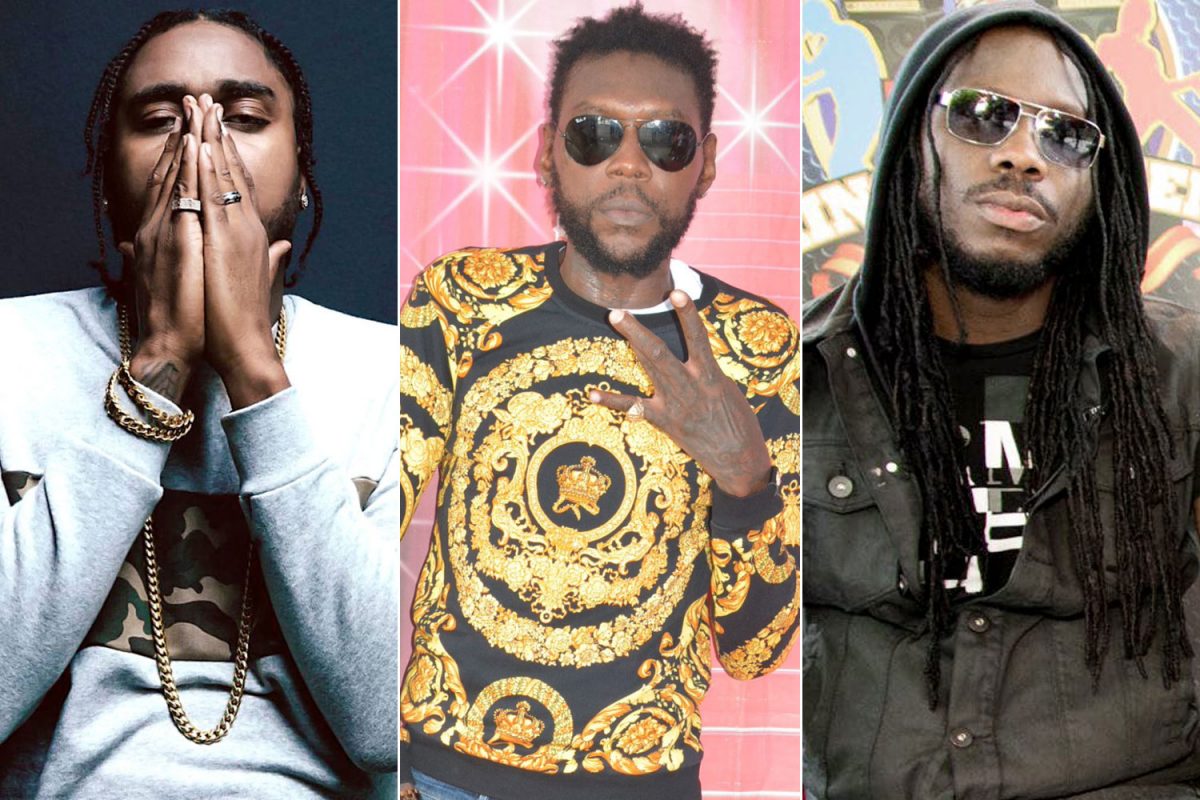Music Insiders Suggest Bridging Gap Between 90s Dancehall And Trap Dancehall For Int’l Success

Trap dancehall, the 808-heavy sonic that has pervaded many Jamaican studios in recent years, is undoubtedly that new family member everyone has a hard time warming up to. Before it gets its official lifetime pass to the Jamaican music library barbeque, some music insiders say it must undergo various changes to optimise its full potential as a genre.
Speaking on a recent episode of Entertainment Report (E.R.), Downsound Records producer Skatta Burrell suggested bridging the gap between the musical framework of 90s digital dancehall, and its trap dancehall relative.
“Dave Kelly (producer) used to sit in the studio and create sounds and merge them together and work with different frequencies and try to get creative with music,” started Burrell. “People are just taking loops now and putting them together and saying that’s a beat and all a dem sound the same but who am I to say? I’m an old figure in the business, I accomplish so much so I can’t turn round and knock the youths dem. I have to say let’s find a way to bridge the gap.”
The concept of dancehall/reggae fusion first actualised as a genre in the mid 90s, with acts like Diana King, Maxi Priest, Patra, Shabba Ranks and Mad Cobra scoring international record deals which solicited dancehall-hip hop and dancehall-RnB music to win American audiences.
The term ‘trap dancehall’ popularised in 2016 with the emergence of Western Jamaican artiste Rygin King, who defined the style as merely the marrying of trap music and dancehall elements. On a technical note, the sonic is rooted in the pervasive clap and signature of the Roland TR-808, significantly changing the sound of foundation dancehall, which integrates instruments like the Casio MT-40 and Yamaha DX100.

Though King laid claim to the name and style, the sound is actually not new as argued by some industry insiders like ethnomusicologist Dr Dennis Howard who traces the trap dancehall sonic (which he places under the genre umbrella ‘one beat’) to Vybz Kartel’s 2011 hit Summertime , produced by Swedish audio engineer Andreas Nilson. Fast-forward, the genre’s frontmen includes the Squash-led 6ix clique, Skillibeng, Ace Gawd, and production outfits Hemton Music and Shab Don Records.
Despite its history, the genre often receives flack from veteran artistes like Bounty Killer and Beenie Man who consider it ‘watered-down’ dancehall with no impact beyond the island’s borders. Burrell urged seasoned entertainers and producers to offer their wisdom and help instead of sideline criticism.
But popular producer NotNice says that is easier said than done. According to the Dream hitmaker, new generation acts are only interested in one sound, and he has a business to run.
“Mi nah go try force a dancehall rhythm on di new youth because dem nuh waan sing pon dat, so mi haffi know weh dem a sing pon and put dat to dem because if me try force dis old school dancehall on all a dem and dem nuh waan sing pon it hungry kill mi up ya,” he shared.
He added that the frontrunners of the genre need to assess the successes and failures of dancehall records in the past, to develop insight into what has crossover potential.
He used Tanto Metro and Devonte’s chart-topper, Everyone Falls in Love (the album for which peaked at number one on the Billboard Reggae Album chart in 1999) to illustrate.
“It is dancehall, the lyrics are simple enough for someone to understand… the topic is relatable worldwide… not just singing about scamming and money and bricks. You cya waan sing about scamming and waan sell it to the person that’s being scammed. It don’t mek no sense… so if it’s trap dancehall mek we tek out some a di trap and put in more a di dancehall inna it.”
The latest catalyst for this conversation is Busy Signal, whose recent E.R. interview revealed that though he is open to new sounds, he believes the root (dancehall) should not be neglected. He added that while trap dancehall may generate local buzz, it is yet to make a good impression internationally.
Producer Damage, whose real name is Dwayne Parkinson, explained his reason for the latter.

“The sound is not selling abroad because what happen is the American market already used to the trap music so it’s like you’re selling them something that they’re used to,” he said. He added that emphasis be placed on learning how to better package and market the music, and invited Signal to share the Bumaye formula to the youth.
Skillibeng’s producer, Gutty Bling, defended the new genre, but admitted it could use better promotion.
“Nuff a di young artistes, they don’t take time and promote the song, that’s why majority of the songs don’t even reach overseas. Yuh haffi really take time out, focus on one song and just push it straight…”
Also defending the new sonic is incarcerated deejay Vybz Kartel, who highlighted that the music library constantly evolves in a recent Instagram post.
“Every generation change di music fi suit dem. Dats why Josie wales no sound like Squash and Uroy no sound like Konshens,” he said.
Kartel continued, “2nd of all- apart from Shabba, Shaggy and Sean Paul, which 90s DJ have a platinum single? Dem a gwaan like dem do ntn special. #Dancehall a before 90s and di so called 90s drum pattern build from 1986 (Punany Riddim by Steelie and Clevie) Dancehall a go deya long after we gone…..Youth unstoppable”
